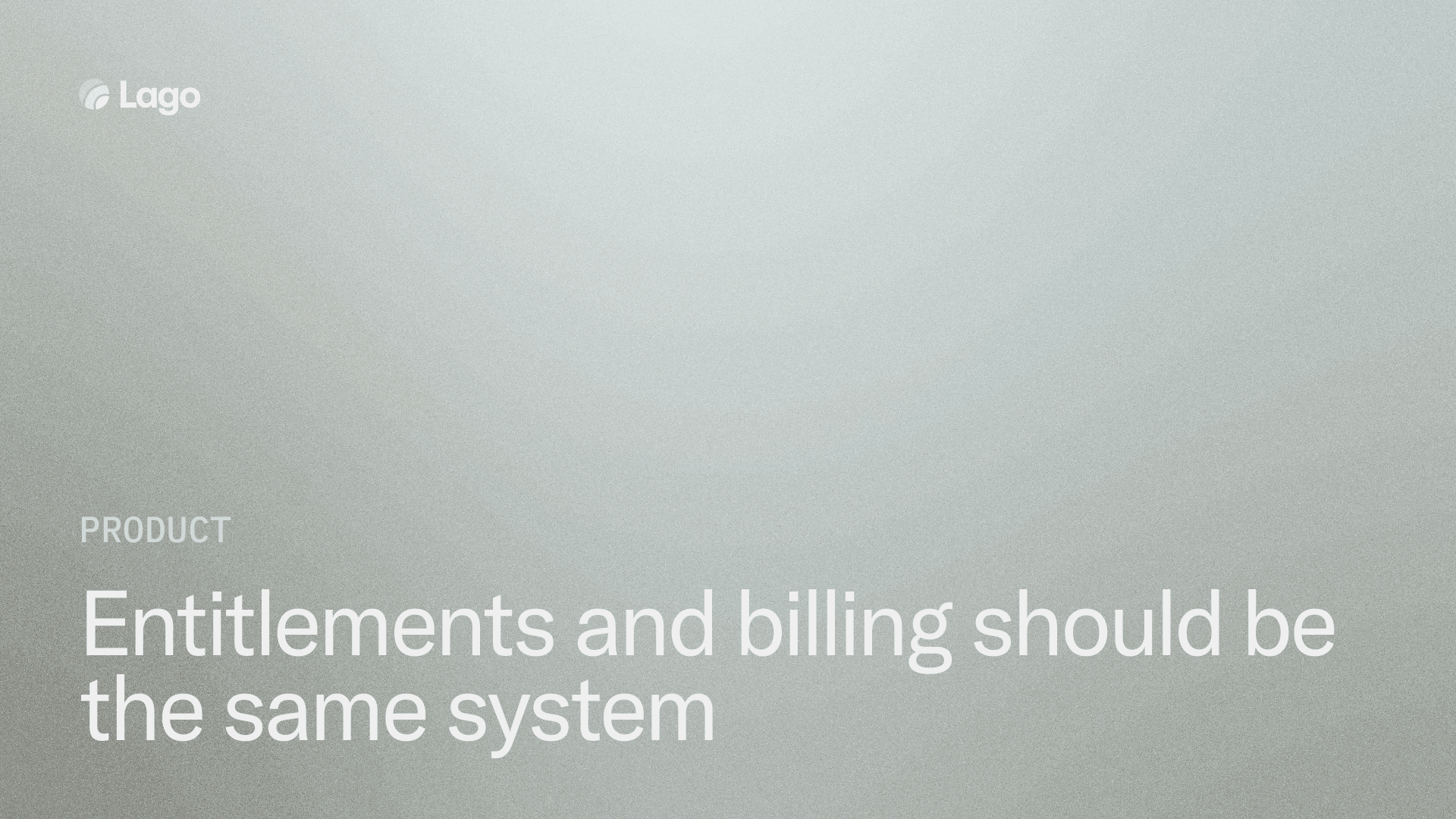
Product
Entitlements and billing should be the same system
Finn Lobsien • 5 min read
Mar 14, 2024
/6 min read
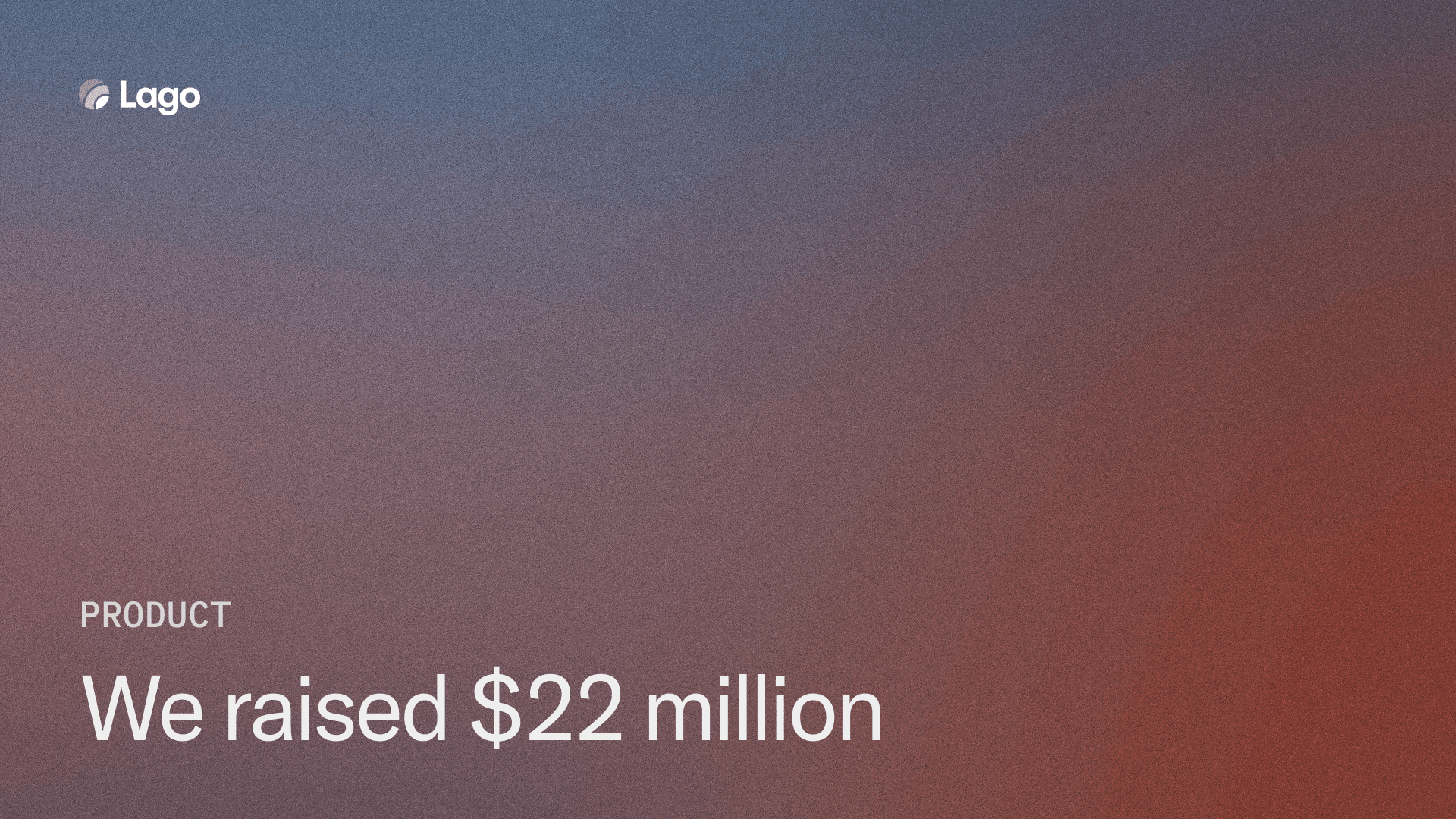
Sharing exciting news with our amazing community!
Lago has raised $22 million led by FirstMark along with Y Combinator, New Wave, Script, as well as industry veterans including Meghan Gill, who has led the monetization efforts of MongoDB for 14 years, Romain Huet, former head of Developer Relations at Stripe - now leading OpenAI developer experience -, and Clément Delangue, CEO of AI open platform Hugging Face, and more.
FirstMark’s General Partner Matt Turck is joining our board. We all have a lot to learn from Matt as he masters the art of memes on social media (and we can’t wait!).
Beyond that, he and FirstMark have also been recognized for their commitment to open source and developer tooling with investments including Cockroach Labs, Clickhouse, Astronomer, Dataiku, and we’re excited to partner with them.
We’ve come a long way since our pivot after the Y Combinator Summer 2021 batch.
Our ‘post Y Combinator’ months were dark: we had decided to ‘change idea’ (meaning we sunset our first product) but had not managed to ‘fall in love’ with a new product yet.
We kept shipping new projects and exploring: through the deep trenches of web3, DAOs, or vertical SaaS… the only conviction we managed to build was the ‘pivot hell really does exist’.
On May 18th in 2022, my co-founder Raffi used HackerNews for the first time (we love writing), to share our article about Why billing is a nightmare for engineers.
We had built a deep expertise on this topic, as our team had built the billing system of a Fintech unicorn before from pre-launch to series D, together. Straight after hitting ‘submit’ on HackerNews, Raffi closed his laptop and went for a beer with friends, as he didn’t expect much reaction… I quickly had to call him and asked him to get back in front of his computer ‘asap’ as I was overwhelmed by the number of reactions.
Our blog post stayed in the “ #1 spot” for more than 36 hours. If you’re not familiar with HackerNews, this is super rare, and usually happens to tech influencers or massive companies’ posts (e.g., Google, Meta). This day, we knew we hit a nerve.
So…what have we been up to?
In less than two years, Lago’s repository (in red) became the leading open-source repository solving for billing on Github, with more than 5,000 Gitstars. We have not spent a cent in advertising, sponsoring, and don’t even have a Marketing team.
As a point of comparison, the second most popular repository (in yellow) had been around for more than 10 years.
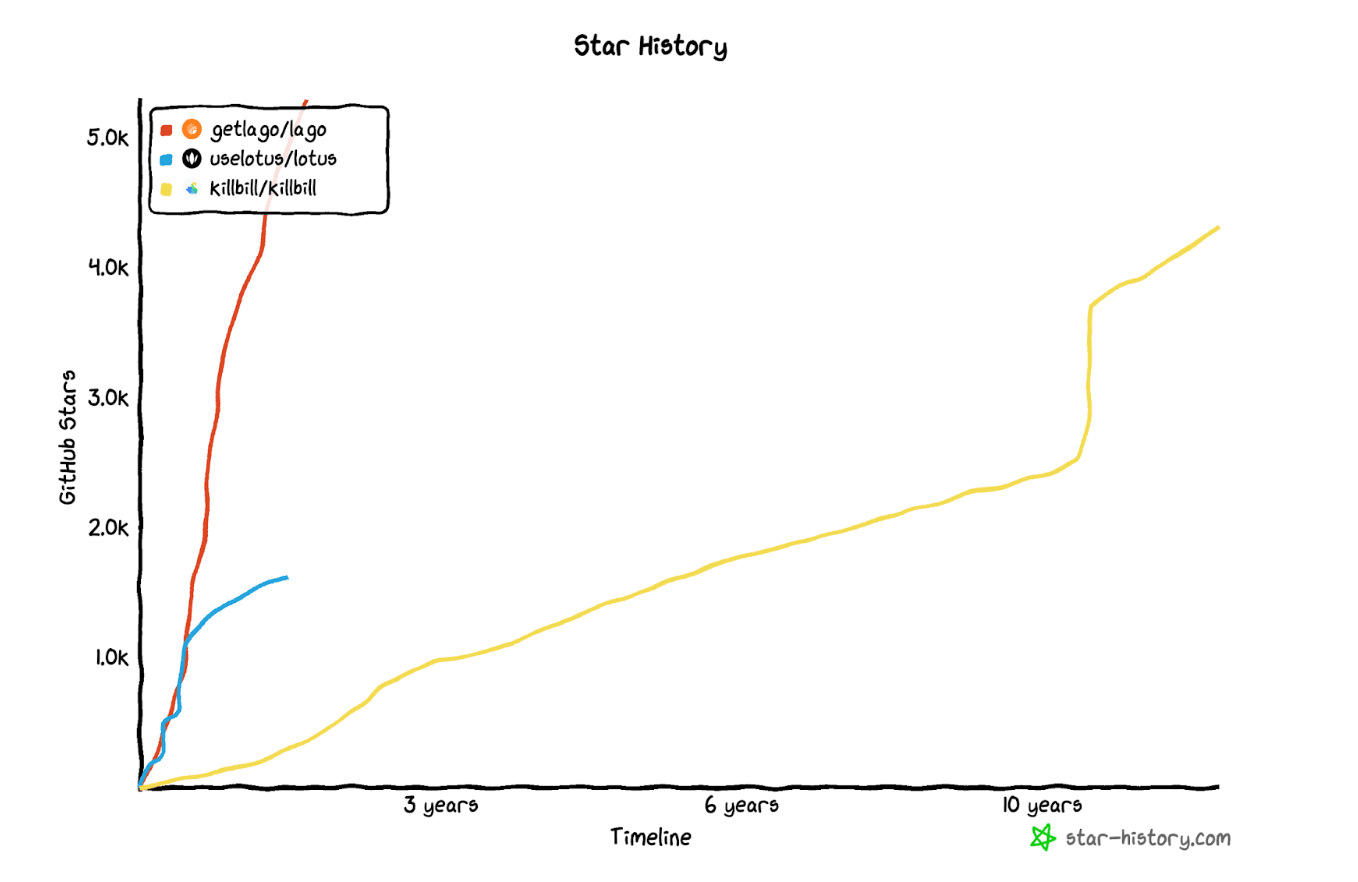
There are a lot of approaches towards evaluating your product market fit, which our friends at Posthog brilliantly summarized here.
Y Combinator partners would always repeat ‘if you wonder if you have product market fit, you probably don’t have it’.
Our assumption was that if we could convince series B+ companies to transition from an existing billing system to a paying version of Lago: a brand new product, still labeled as an ‘alpha’ and then ‘beta’ product, which officially had only raised $125,000 in pre-seed, it’d be the ultimate sign of product market fit.
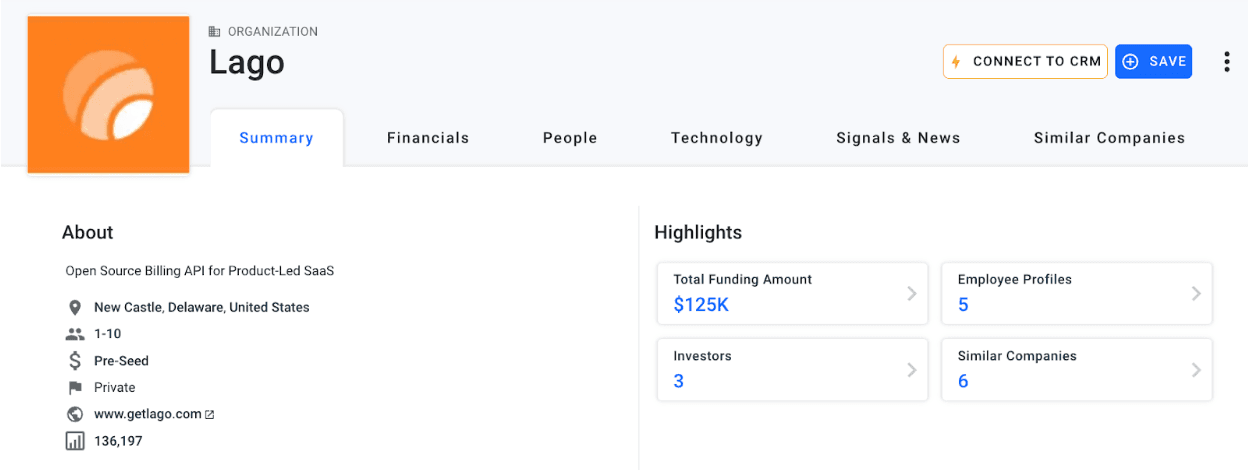
To be clear, we intentionally did not want to compete on price (we did offer light discounts though), as the test would only stand if our prices stayed close to similar legacy options.
More on why we think Open Source does not win by being cheaper here.
Through a growing influx of inbound leads, we successfully converted dozens of companies, such as:
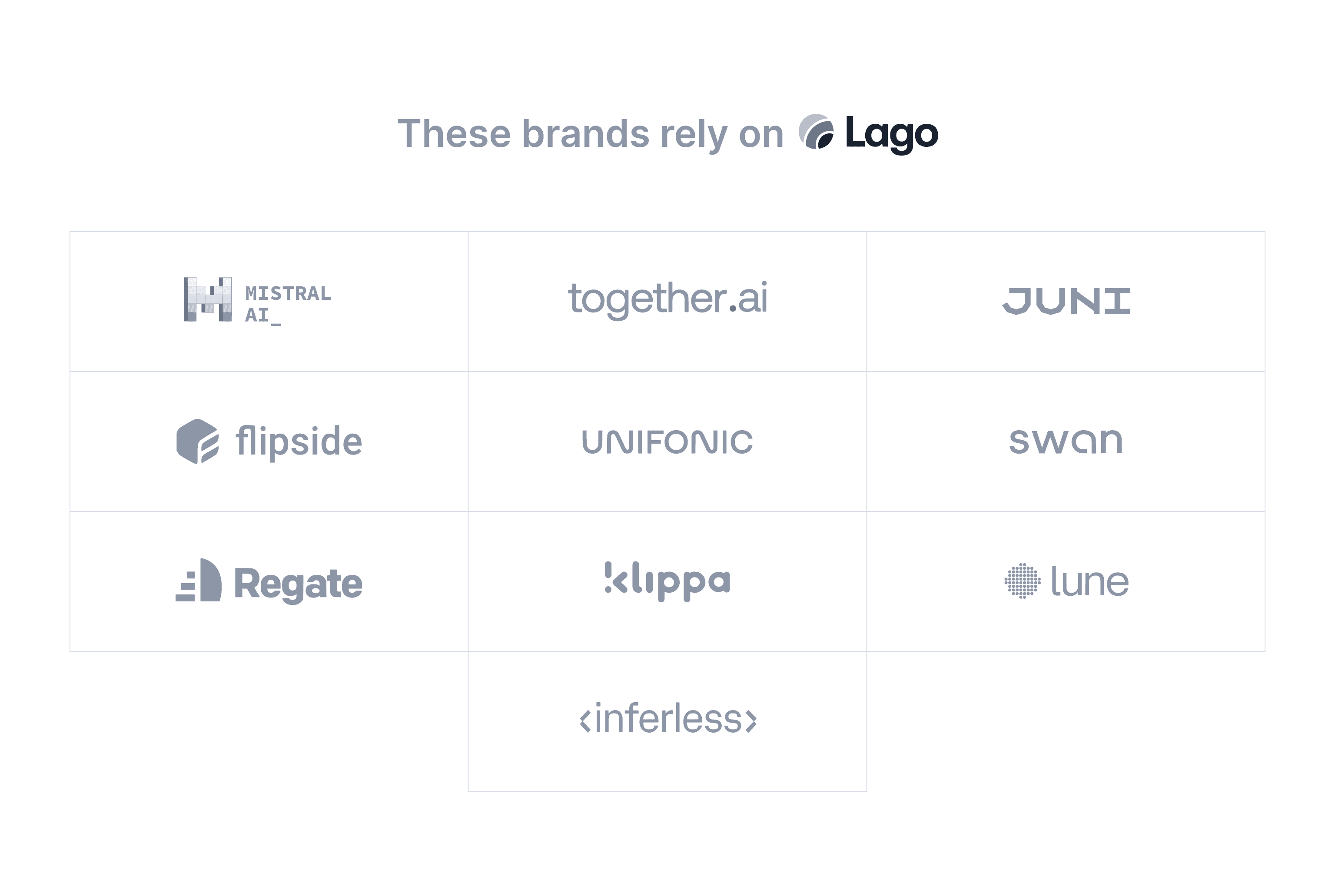
“We chose Lago as our billing provider because we believe in the open-source ecosystem. They have been able to follow the pace of our releases and have allowed us to focus on what we do best.”, Timothée Lacroix, co-founder and CTO at Mistral.ai
“When we started Swan, we didn’t have in mind the full scope of intricacies of the revenue stack we’d have to build for an embedded banking platform like ours. After a thorough benchmark of available options, we decided to switch from a legacy solution to Lago as they proved to offer the strongest product, as the team has a deep understanding of hybrid monetization streams: transaction based, revenue sharing, subscriptions, etc , and the most developer-first approach.”Nicolas Saison, co-founder and COO at Swan.io
Our early positioning has been to be the open-source alternative to Stripe Billing and Chargebee, but that’s actually only a small part of our vision.
Stripe is one of the best Fintechs of the world, however it comes with many limitations: flexibility, transparency, and a built-in incentive to lock you in their ecosystem of products and services.
Goal: Focus on composability and open-source to address the long tail of billing use cases
We aimed to create the most flexible and composable billing engine to date, and we believe open source is the key to this. The past 20 months showed that unique contributions, such as specific metered aggregations, pricing models, or integrations, are only feasible in an open-source environment, not with closed-source solutions.
Moreover, since billing fundamentally revolves around data management, the ability for large teams to directly access, host, and control the billing database in a secure way is essential. Our goal has been to offer the ideal solution that bridges the gap between building from scratch and buying off-the-shelf.
Goal: Enable as many adjacent systems as possible to access real-time usage and billing data.
Our first step was to solve billing nightmares for engineers. Our second step is to make sure all the adjacent systems that require real-time, accurate, and granular revenue data to perform their missions (e.g., payments, quoting, taxes, reporting) can easily access this data.
In other words, we root for the concept “open billing database”. Indeed, unlike closed ecosystems such as Stripe’s, in which accessing basic data to calculate Monthly Recurring Revenue requires paying for two additional Stripe’s products (more on this here), we make billing data accessible to other adjacent systems, by default.
That’s why in phase two, we’ll be focusing on building as many integrations or bridges (e.g., ‘integrations kits’ so that the community can build their own integrations autonomously) as possible with adjacent systems, to make this access seamless. To make this connectivity relevant within organizations, we’ll also work on authorizations, role based access controls, validation workflows, insights / analytics.
Our ambition is to make sure finance, operations, and revenue teams can choose and customize their revenue stack, in a “best of breed” approach, whether they use the mainstream tool on the market or the very niche / industry-specific one.
Goal: build the best community and tooling to collaborate on revenue data (forecast, recognition, margin monitoring)
Defining pricing and revenue modeling (e.g., how to forecast or recognize revenue) are often lonely jobs within organizations: they are often the prerogative of finance of data teams, and the models are seldom understood outside these silos.
In addition, there’s little collaboration between companies on this topic (e.g, most B2B SaaS rebuild their own model to recognize revenue, for instance).
If we zoom into industry specific challenges: AI companies or researchers could join forces to create cost monitoring models, provided this does not cross a competitive line ; or Fintech companies could work on a standard for “interchange calculations”.
This will empower any companies to discover optimal unit economics and pricing strategies, enhancing your financial planning and decision-making processes.